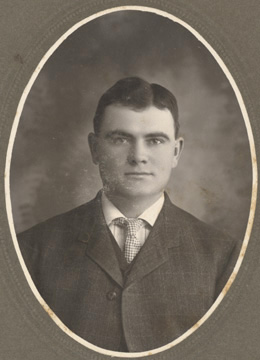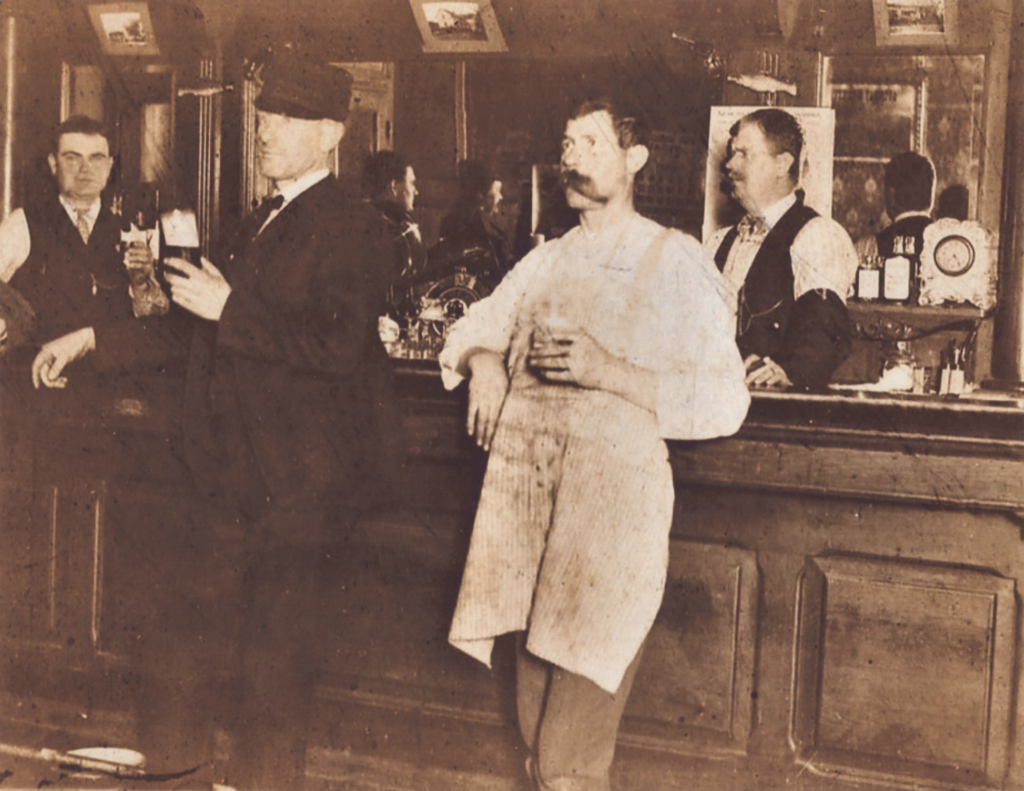Based on family memories provided by John Berbrich, grandson of Otto Berbrich
The stories of Otto Berbrich and August Beyer are reminiscent of the stories of many German immigrants to Minnesota in the latter part of the 19th century. Otto Berbrich was born in Germany in 1880 and immigrated a year later with his parents, Herman and Louise, and his three older sisters. The family settled in New Ulm, eventually residing in a house where Casey’s gas station now stands on the south side of the city.
When Otto was fifteen, he found work as a farmhand north of Courtland that paid $17 a month plus room and board. Grueling days stretched from 5 a.m. to 8 p.m., but by 1900, Otto had managed to save enough money to buy a bar in Courtland. The bar, located where the Crow Bar is today, became known as Beyer & Berbrich Saloon, Hotel, Livery and Feed Stable in 1903, when August Beyer became Otto’s business partner.

In 1887, fifteen-year-old August Beyer had immigrated from Germany to Courtland with his older brother Franz (Frank). August worked as a farmhand and after his marriage to Minnie Berbrich, Otto’s sister, in 1900, he was employed by the railroad as a section hand (also called a gandy dancer) laying and maintaining tracks. August saved his pennies and he and Frank were able to send money to bring their parents, Karl and Anna Beyer, to Courtland.

August sold his share in the saloon in 1912 and bought a farm. Just a year later, he sold the farm and used the proceeds to purchase the Northwestern Hotel in New Ulm, renaming it the House of Beyer. Within a few years, he added a bar, which he had to close in 1920, during Prohibition. August added a meat market and grocery to the hotel, the first grocery in the Riverside neighborhood, according to August’s obituary. Eventually, a dining room was added in the hotel basement. The business stayed in the family until it closed in the mid-1970s.
Otto sold the saloon in 1919 and bought a farm near Courtland, where his grandson, John Berbrich, grew up and where he still lives today.
